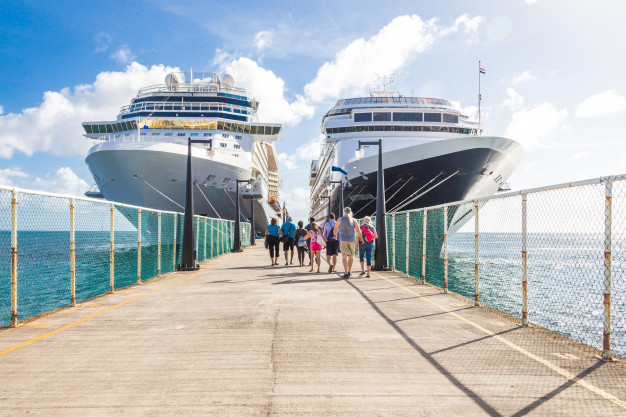The COVID-19 pandemic has without any doubt devastated global tourism, and many will say good riddance to overcrowded cities and rubbish-strewn natural wonders.
Cruises have become a symbol of the ravages that coronavirus has inflicted on tourism. A sector that until January of 2020 was worth $150bn, by its own estimate, is now shedding jobs, issuing debt and discounting furiously simply to survive. But even before the current crisis hit, cruising had become symptomatic of the damage that tourism wreaks on the world.

Tourism is an unusual industry in that the assets it monetizes a view, a reef, a cathedral do not belong to it. The world’s dominant cruise companies pay little towards the upkeep of the public goods they live off.
By incorporating themselves in overseas tax havens with benign environmental and labour laws respectively Panama, Liberia and Bermuda cruising’s big three, which account for three-quarters of the industry, get to enjoy low taxes and avoid much irksome regulation, while polluting the air and sea, eroding coastlines and pouring tens of millions of people into picturesque ports of call that often cannot cope with them.
What goes for cruises goes for most of the travel industry.

For decades, a small number of environmentally minded reformists in the sector have tried to develop sustainable tourism that creates enduring employment while minimizing the damage it does. But most hotel groups, tour operators and national tourism authorities whatever their stated commitment to sustainable tourism continue to prioritize the economies of scale that inevitably lead to more tourists paying less money and heaping more pressure on those same assets.

Before the pandemic, industry experts were forecasting that international arrivals would rise by between 3% and 4% in 2020. Chinese travelers, the largest and fastest-growing cohort in world tourism, were expected to make 160m trips abroad, a 27% increase on the 2015 figure.
The virus has given us a picture, at once frightening and beautiful, of a world without tourism. We see now what happens to our public goods when tourists aren’t clustering to exploit them.

Shorelines enjoy a respite from the erosion caused by cruise ships the size of canyons. Walkers stuck at home cannot litter mountainsides. Intricate culinary cultures are no longer menaced by triangles of defrosted pizza. It is hard to imagine a better illustration of tourism’s effects than our current holiday away from it.

Coronavirus has also revealed the danger of over reliance on tourism, demonstrating in brutal fashion what happens when the industry supporting an entire community, at the expense of any other more sustainable activity, collapses.

On 7 May, the UN World Tourism Organization estimated that earnings from international tourism might be down 80% this year against last years figure of $1.7tn, and that 120m jobs could be lost. Since tourism relies on the same human mobility that spreads disease, and will be subject to the most stringent and lasting restrictions, it is likely to suffer more than almost any other economic activity.
As tourism’s impact on the world has deepened, so the global economy has come to depend on it.

In April, Edmund Bartlett, the Tourism Minister of Jamaica where the industry brings in more than 50% of the islands foreign currency bemoaned the fact that there had been zero arrivals for Montego Bays airport, zero arrivals for Kingston’s airport and zero guests in hotels, on top of the 300,000 people who are without jobs because all of the transportation systems that support tourism are at a halt, [because] the farmers who support tourism have nowhere to sell their crops, [because] the attraction are closed.
